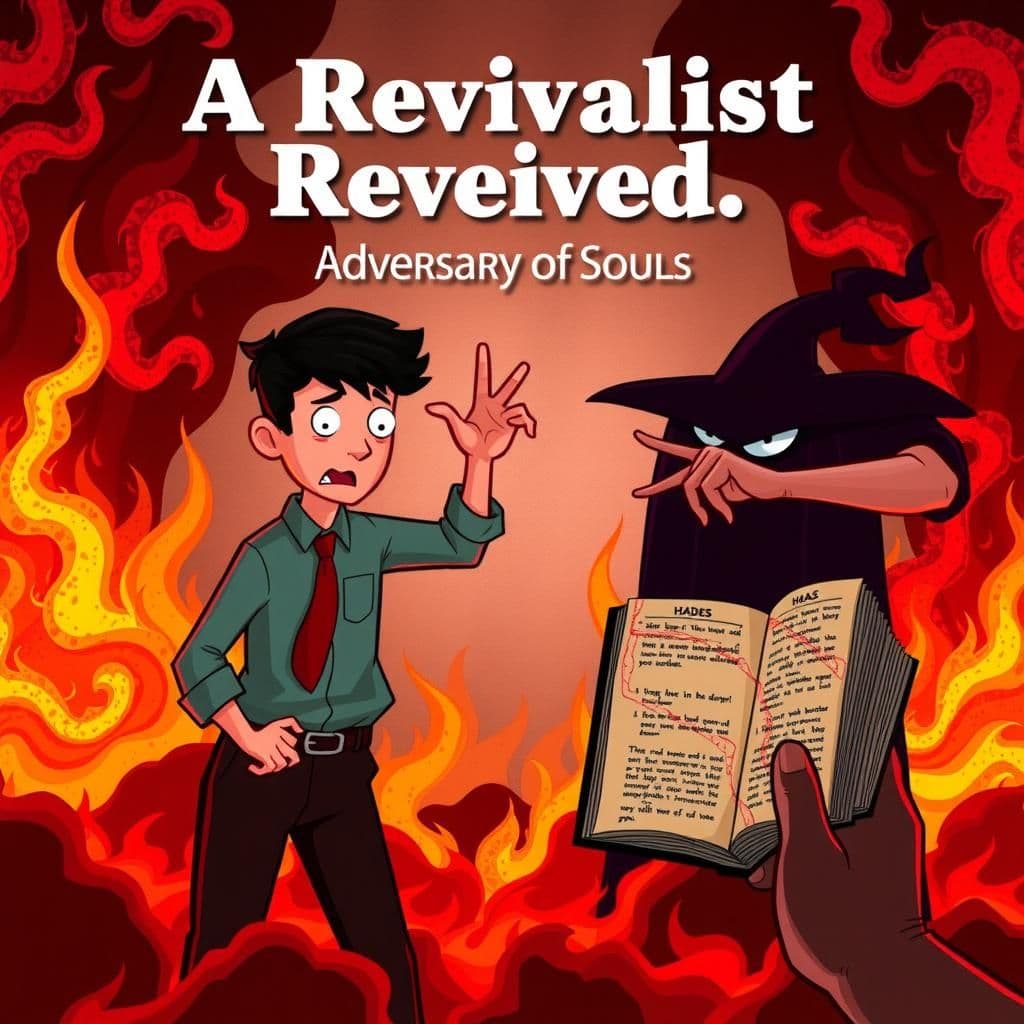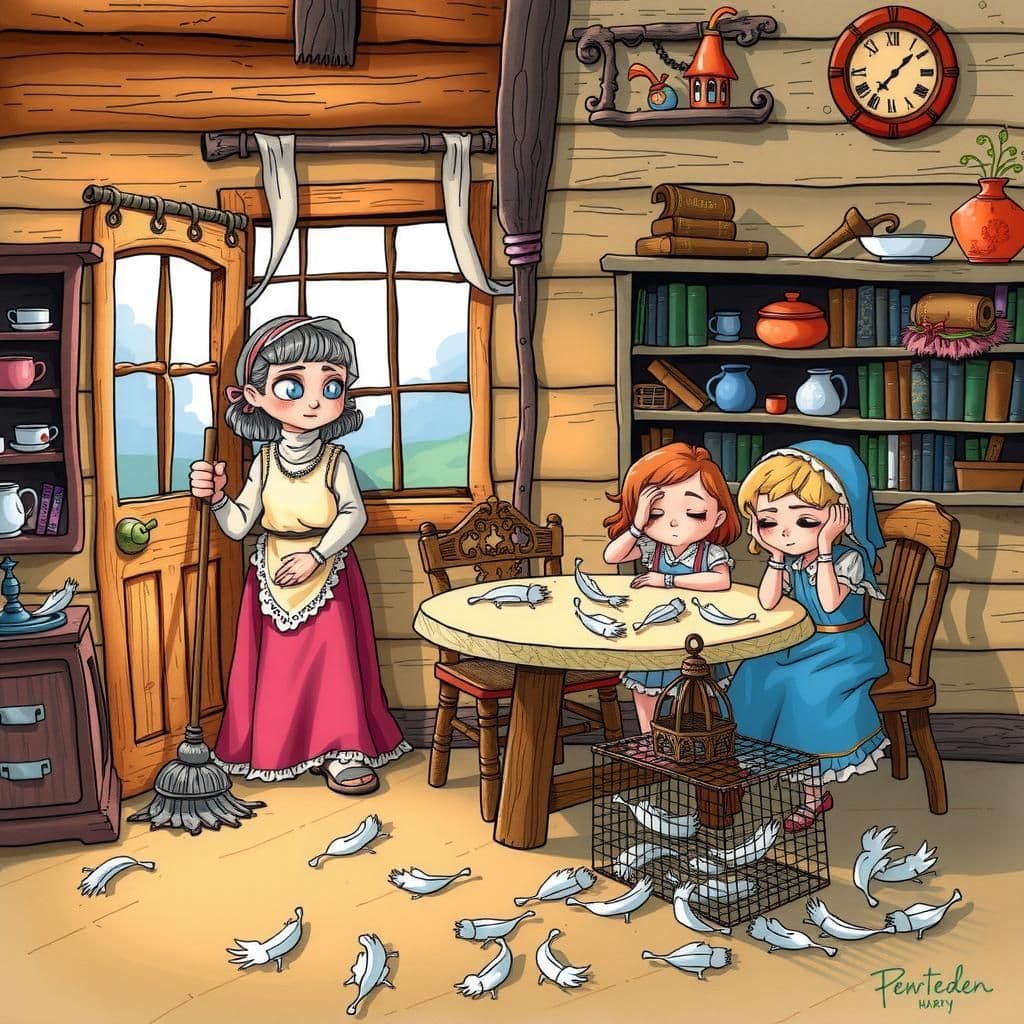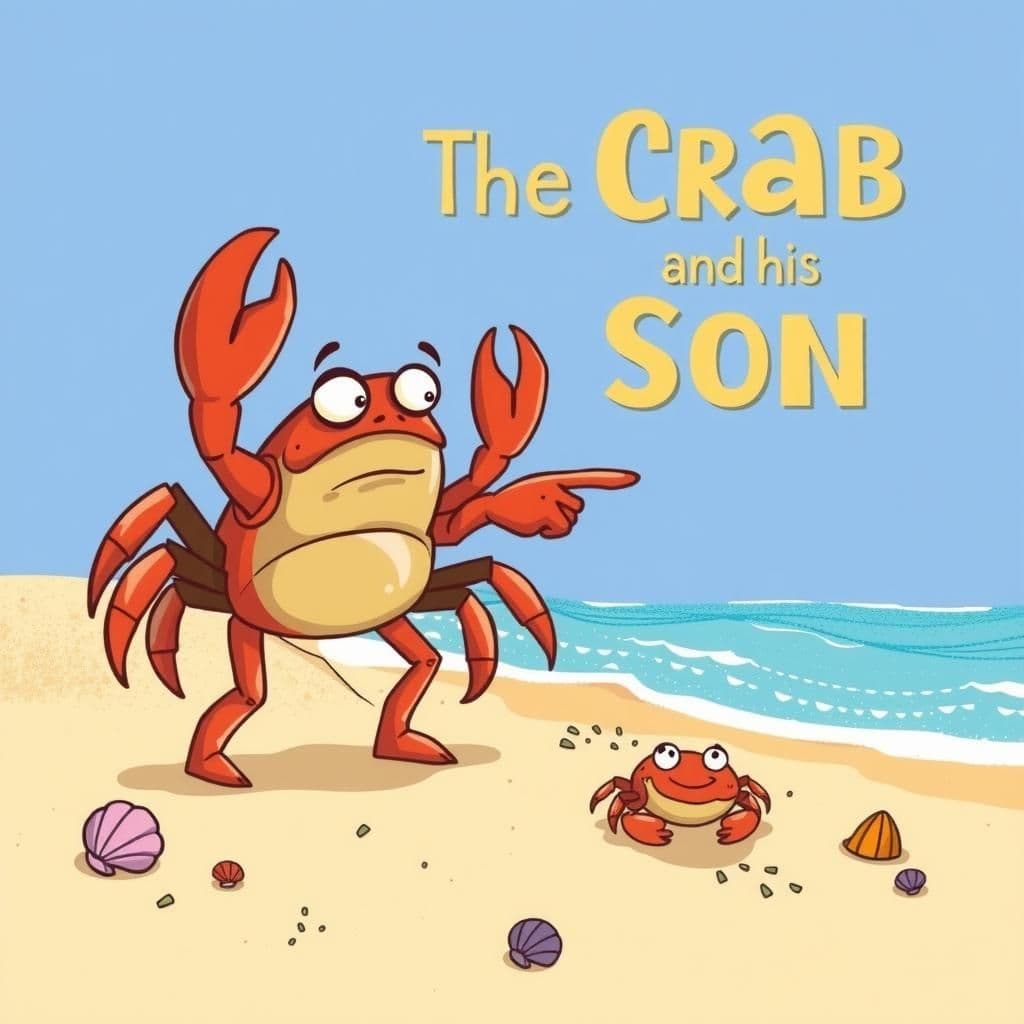A Revivalist Revived

Story Summary
In this timeless moral story, a revivalist who dies in the pulpit finds himself in Hades, where he insists he deserves freedom for his pious life. However, the Adversary of Souls denies his request, citing his poor grammar teachings and misinterpretations of scripture, illustrating that even moral lessons can be undermined by flawed examples. This short bedtime story serves as a reminder that moral integrity extends beyond intentions to how one conveys and lives out their beliefs.
Click to reveal the moral of the story
The moral of the story is that one's adherence to doctrine and personal piety may be overshadowed by the negative impact of their actions and teachings on others.
Historical Context
This story draws on the rich tradition of satirical literature that critiques religious hypocrisy and moral failure, reminiscent of works like Dante Alighieri's "Inferno" and Samuel Butler's "Erewhon." The depiction of a revivalist facing judgment in Hades highlights the conflict between outward piety and the true essence of moral teachings, echoing themes found in the writings of Jonathan Swift and Mark Twain. By using humor and irony, the narrative underscores the importance of both linguistic correctness and ethical integrity in religious life.
Our Editors Opinion
This story highlights the importance of integrity in both belief and action, underscoring that our teachings and examples significantly impact those around us. In modern life, a real-life scenario could be a teacher who preaches the value of respect and kindness in the classroom but frequently disparages students or colleagues; despite their good intentions, the mixed messages can lead to confusion and mistrust, ultimately undermining their authority and effectiveness.
You May Also Like

The Widow and Her Little Maidens
In this humorous tale from folklore, a cleanliness-obsessed widow wakes her two maidens at dawn, driving them to conspire against the rooster that crows at daybreak. However, their plan backfires when the widow begins to rouse them in the middle of the night, leading to even more trouble. This short moral story highlights the unintended consequences of seeking a quick solution, reminding readers that sometimes our actions can lead to greater challenges.

The Crab and his Son
In "The Crab and his Son," a father crab criticizes his son for his ungraceful sidelong gait, prompting the son to point out his father's similar flaw. This exchange reveals the hypocrisy in the father's advice and serves as a valuable lesson from moral stories, emphasizing that one should lead by example. This short tale encapsulates the essence of educational moral stories, teaching readers the importance of self-reflection and consistency in behavior.

Mercury and the Woodchopper
In "Mercury and the Woodchopper," a woodchopper loses his axe in a deep pool and seeks help from Mercury, a thoughtless deity. As Mercury dives in to retrieve the axe, the surrounding trees become loosened and fall, illustrating an important lesson found in many inspirational short stories with moral themes: the consequences of impulsive actions. This tale is a part of the top 10 moral stories that teach children valuable lessons about patience and consideration.
Other names for this story
Reviving the Revivalist, Hades' Orthodox Dilemma, The Grammar of Hades, A Pulpit in Peril, The Adversary's Judgment, Lessons from the Underworld, Faith in Limbo, The Revivalist's Reckoning
Did You Know?
This story humorously critiques the rigidity of certain religious teachings by illustrating how even well-intentioned beliefs can lead to unexpected consequences, suggesting that a strict adherence to rules, whether in language or faith, can sometimes overshadow the underlying message of compassion and understanding.
Subscribe to Daily Stories
Get a new moral story in your inbox every day.